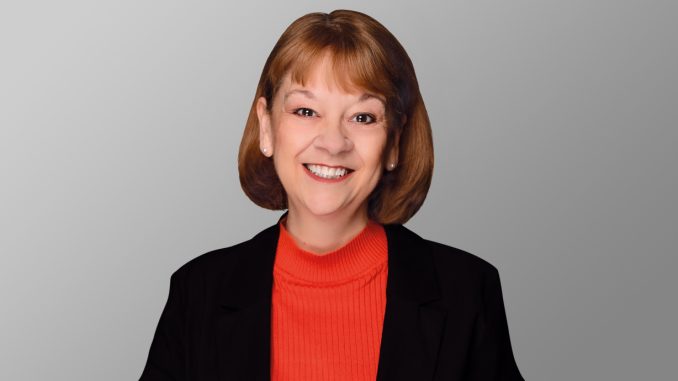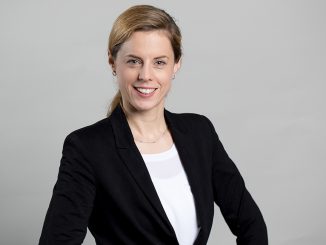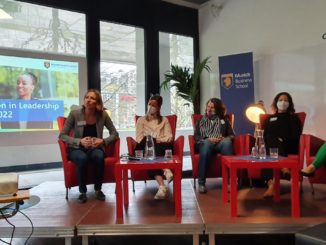
In this interview series, we regularly introduce lecturers of Munich Business School (MBS), who give insights into their research projects and explain how business practice as well as students benefit from these. Today it is the turn of Prof. Dr. Nancy Landrum, who was appointed Professor of Sustainable Business Transformation at Munich Business School at the beginning of the year.
MBS Insights: Dear Nancy Landrum, at the beginning of the year you were appointed to the newly created professorship for Sustainable Business Transformation at Munich Business School – congratulations! What fascinates you about this topic and what were your most recent professional stations and research ventures in this field?
Prof. Dr. Nancy Landrum: Our economic activities are causing great destruction to nature, which is our life support system. As a business professor, I want to help transform business and economic activity into something that is sustainable and non-destructive – one that leads to flourishing for humans, our social and economic systems, and nature. There are many opportunities for business to make a positive impact and I want to aid in that transition.
Before being appointed as MBS Professor, I was a tenured Professor at Loyola University Chicago, a tenured Associate Professor at University of Arkansas at Little Rock, and an Assistant Professor at Morehead State University. But before that, my first career was as a children’s mental health therapist. I still have the desire to help make the world a better place, but now my focus is to do this through business. My research is primarily focused on stages of sustainability, activities associated with each stage, and how to help businesses advance to the next stage.
MBS Insights: How do you incorporate your research and expertise into teaching? What aspects do you think are particularly interesting for students?
Prof. Dr. Nancy Landrum: I incorporate my research into classes through readings and application. Students read my journal article and book chapter publications to learn about the stages of sustainability. In class, we apply the information by reading about a company’s sustainability initiatives and then we match the company to a stage of sustainability. Students are then tasked with identifying what the company needs to do to advance to the next stage of sustainability.
I want to give students practical hands-on skills that can enhance their CV and that can be used to help businesses advance sustainability. I think students find hands-on application and skills development particularly interesting and it is helpful in launching their sustainability careers. In my courses, students learn how to
- conduct simple energy audits, waste audits, water audits, and scope 2 greenhouse gas emissions inventories,
- use a simulation to apply a 7-step research-based change management model to lead large-scale change in an organization, and
- determine a company’s stage of sustainability and what is needed to help the company improve its sustainability activities.
MBS Insights: And how does practice benefit from your research?
Prof. Dr. Nancy Landrum: My research is helping businesses identify where they are in the sustainability journey and how they can advance in the journey. The focus of much of my research is on identifying how businesses can move from “weak” sustainability to “strong” sustainability. Numerous researchers have confirmed that businesses are currently practicing weak sustainability, which is business-as-usual with incremental improvements. Sustainability schemes (standards, frameworks, guidelines, etc.) also promote and advance weak sustainability. The fact is, this weak approach is actually prolonging unsustainability and continuing the damage to our environment. This is why greenhouse gas emissions continue to accumulate and the climate crisis is intensifying. This weak approach is not sustainable at all and will never help us achieve a flourishing future. The opposing solution is to adopt strong sustainability which requires change from business-as-usual. But one of the major problems is that there is no guidance for businesses on how to achieve strong sustainability and that’s what my research seeks to provide. As I continue developing my model on stages of corporate sustainability, we will be working with businesses to operationalize and test the model to provide more concrete guidance to companies.



